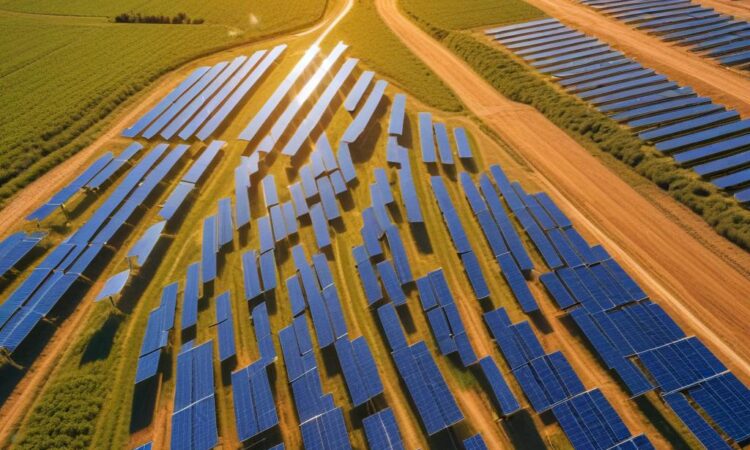Climate Change and Investment: A Growing Trend
The growing awareness of climate change is driving investment in renewable energy and sustainable practices, impacting various sectors of the economy. This shift towards a greener future is not only driven by environmental concerns but also by economic opportunities. The transition to a low-carbon economy presents a significant investment opportunity, attracting investors, businesses, and governments alike.
The Rise of Renewable Energy
Renewable energy sources, such as solar, wind, and hydro, are experiencing unprecedented growth. Governments around the world are setting ambitious targets for renewable energy deployment, driven by the need to reduce greenhouse gas emissions and promote energy security. This has led to a surge in investment in renewable energy technologies, with private and public sector players vying to capitalize on this burgeoning market.
The cost of renewable energy technologies has declined dramatically in recent years, making them increasingly competitive with fossil fuels. This trend is further accelerating the transition to a cleaner energy future. Moreover, the growing demand for renewable energy is creating jobs and fostering innovation in the sector.
Sustainable Practices: A New Paradigm
Beyond renewable energy, the impact of climate change is also driving investment in sustainable practices across various sectors. Companies are increasingly adopting environmentally friendly practices, reducing their carbon footprint, and investing in resource efficiency. This shift towards sustainability is not only driven by ethical considerations but also by a growing awareness of the financial risks associated with climate change.
Investors are increasingly demanding transparency and accountability from companies regarding their environmental performance. Companies that fail to demonstrate their commitment to sustainability are facing growing pressure from investors, consumers, and regulators.
Government Initiatives and Policy Frameworks
Governments are playing a crucial role in driving investment in climate change mitigation and adaptation. They are implementing policies, providing incentives, and setting regulatory frameworks to encourage businesses and individuals to adopt sustainable practices.
Carbon pricing mechanisms, such as carbon taxes and cap-and-trade systems, are becoming increasingly common. These policies aim to internalize the cost of carbon emissions, incentivizing businesses to reduce their environmental impact. Governments are also investing heavily in research and development of clean technologies, supporting the development of innovative solutions to climate change.
The Financial Landscape: Green Bonds and Impact Investing
The financial landscape is undergoing a significant transformation, with the emergence of green bonds and impact investing. Green bonds are debt securities specifically issued to finance projects with environmental benefits, such as renewable energy, energy efficiency, and sustainable infrastructure. Impact investing focuses on generating both financial returns and positive social and environmental impact.
These instruments provide investors with opportunities to align their investments with their values, contributing to a more sustainable future. The growing demand for green bonds and impact investments reflects the increasing awareness of climate change and the desire to invest in solutions.
Challenges and Opportunities
While the trend towards climate-friendly investment is positive, there are significant challenges that need to be addressed. One major challenge is the need for greater investment in climate-resilient infrastructure to adapt to the impacts of climate change, such as sea-level rise and extreme weather events.
Another challenge is the need to ensure a just transition to a low-carbon economy. This requires supporting workers in sectors affected by the shift to a green economy, providing retraining opportunities, and investing in social safety nets.
Despite these challenges, the investment opportunity presented by climate change is immense. The transition to a sustainable economy will create significant economic opportunities, fostering innovation, job creation, and economic growth. By investing in renewable energy, sustainable practices, and climate-resilient infrastructure, we can mitigate the risks of climate change and build a more prosperous and sustainable future for all.
Conclusion
Climate change is a pressing issue, but it also presents a unique opportunity to transform our economies and create a more sustainable future. The growing awareness of climate change is driving investment in renewable energy and sustainable practices, leading to a significant shift in the global economic landscape. By embracing the green economy, we can create a future that is both environmentally responsible and economically prosperous.

